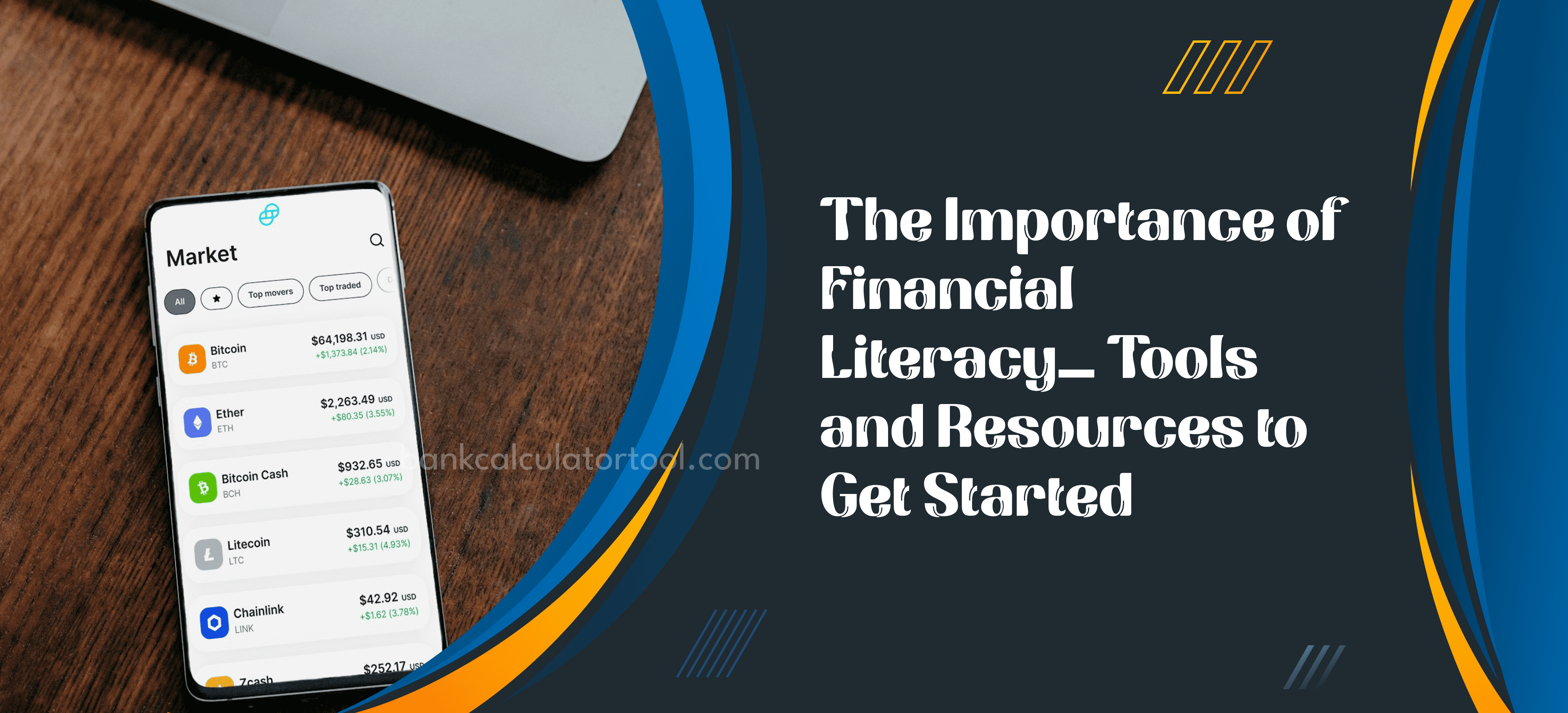Budgetary Proficiency: Devices and Assets to Get Started
Financial proficiency is more than a well-known state; it’s an imperative ability that permits people to oversee their funds shrewdly.
Understanding individual finance is pivotal for handling life’s budgetary challenges and leveraging opportunities, whether it’s budgeting, saving, investing, or planning for retirement. This web journal investigates why financial proficiency is important and provides tools and resources to help you start your journey toward financial competence.
Why Financial Proficiency Matters
Empowerment and Confidence:
Financial education engages people with the knowledge and skills to manage their finances effectively. It simplifies complex monetary concepts, making them accessible and understandable, empowering individuals to take control of their financial futures.
Informed Decision-Making:
Financial literacy helps an individual to make informed decisions concerning money, including all possible implications from loans, credit cards, and investments. The ability to make clear financial decisions can keep individuals away from making any mistakes related to high-interest debt or poor decisions in investment.
Financial Independence:
In general, financially literate people tend to be more financially independent. They can set and stick to budgets, save better, and ensure smart investments. This then goes on to become some good preparation for long-range goals such as paying for a house, funding education, or retiring comfortably.
Economic Stability:
On a larger scale, general monetary competence leads to financial stability. The more the number of people who can manage monetary matters well, the less the possibility of a financial crisis or economic recession due to wide-scale mismanagement of money.
Key Financial Concepts to Learn
Budgeting:
Budgeting is one of the ways in which financial management is made. By keeping salary and expenses records, one ensures that investment does not go beyond pay. Budgeting prioritizes one’s financial goals and provides stability about budget.
Savings and Investment:
The differentiation between ‘saving’ and ‘investing’ is crucial to know. In a broad sense, saving money is kept for contingencies or short-term goals and is normally kept liquid and accessible in accounts. Investing means money deployed in instruments like equity or bonds or real estate for long-term wealth appreciation.
Credit and Debt Management:
Credit can be a very powerful financial tool if it is used dependably. Knowing how credit works, establishing and retaining a good credit score, and handling debt are just some facets of being financially literate.
Retirement Planning:
Long-term retirement planning is another important area in which learning about different retirement accounts, including 401(k)s and IRAs, the rule of compound interest, and why it is important to start early.
Tools and Resources to Improve Budgetary Literacy
Online Courses and Workshops:
A score of online courses and workshops introduces personal finance today. Websites like Coursera, Khan Institute, and Udemy offer courses that range from advanced investment techniques to simple budgeting.
Financial Calculators:
Financial calculators will help you plan and thus effectively decide on many things. Here are a few simple ones for you:
- Budget Calculator: Record your income and expenses and then budget.
- Savings Calculator: Estimates the growth in your investment funds over time.
- Investment Calculator: This calculates the potential return on investments.
- Loan Calculator: This calculates month-to-month payments and total interest for loans.
- Retirement Calculator: This will help you determine how much you will need to retire.
Mobile Applications:
It can make managing accounts with the bank calculator tool light in weight, effective, and in no time. A few popular financial management applications include:
- Mint: A full-service budgeting, cost-tracking, and financial management tool.
- YNAB: You Need A Budget puts an emphasis on proactive budgeting to provide help for clients to gain control of their money.
- Acorns: An investment application that rounds off your purchases and invests the change saved.
Books and Podcasts:
Books and podcasts are great resources to build budgetary knowledge. A few recommended books include:
- “Rich Dad Poor Dad” by Robert Kiyosaki: He understands financial freedom and the way of building wealth.
- “The Total Money Makeover” by Dave Ramsey: The focus is on debt elimination and financial planning.
- “The Intelligent Investor” by Benjamin Graham: An eternal investing book.
Podcasts: “The Dave Ramsey Show,” “Planet Money,” “ChooseFI” have been very helpful for advice and insight into many financial matters.
Financial Advisors:
Consulting with a financial advisor allows you to extrapolate personal advice concerning your unique financial situation and goals. Professionals in this field of financial advisers are experienced at giving advice on topics such as budgeting and debt management down to even investment strategies and retirement plans.
Getting Started
Take a Close Look into Your Present Financial Condition:
First, take stock of your finances. Chart all income and expenses, including debts owed and savings, to get a clear idea of where things stand.
Establish Financial Goals:
Determine both short-term and long-term budgetary goals. These can be to pay off debt, have an emergency fund, or save for the down payment on a home. Whatever it is, having certain goals will definitely help make the right decisions about money.
Create a Budget:
Establish a budget compatible with your financial goals. Assign dollars for needs, savings, and investments.
Educate Yourself:
Utilize the outlined tools and resources to better understand personal finance. The more knowledgeable you are, the better prepared you will be at making prudent financial decisions.
Take Action:
Apply what you have learned. Begin with baby steps that you can easily accomplish, and continue working up to more complex money management techniques.
Conclusion
Financial education is a life skill, one that portends monetary stability and independence. By applying this knowledge about some simple and elementary budgetary concepts and by putting into practice various tools and resources available to you, it is within your reach to take control over your budgetary destiny. Begin now by opening yourself up to the knowledge and the skill that shall empower you to confidently tackle this often intimidating financial world.



